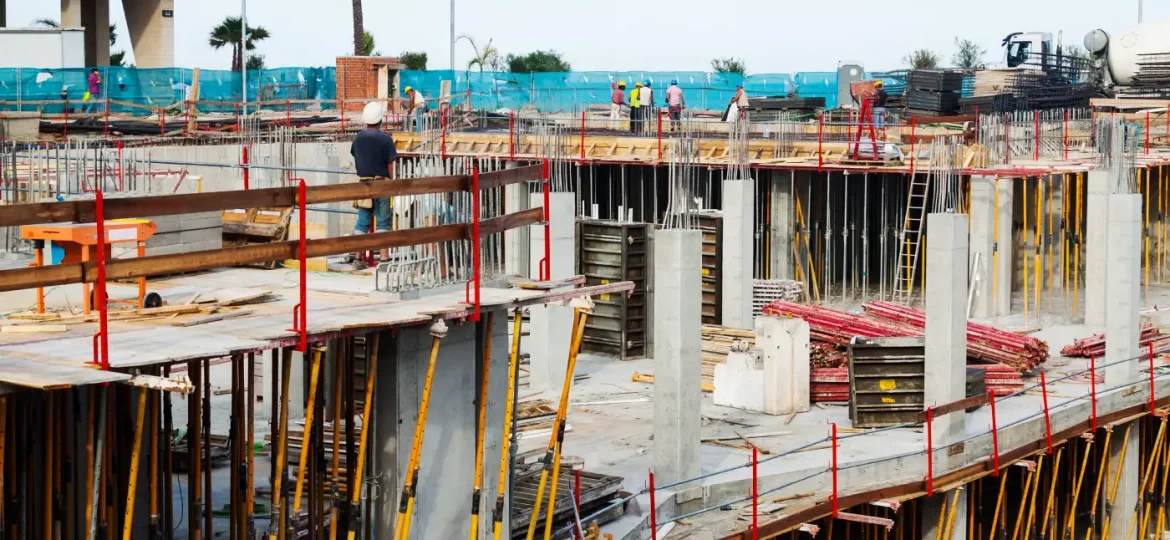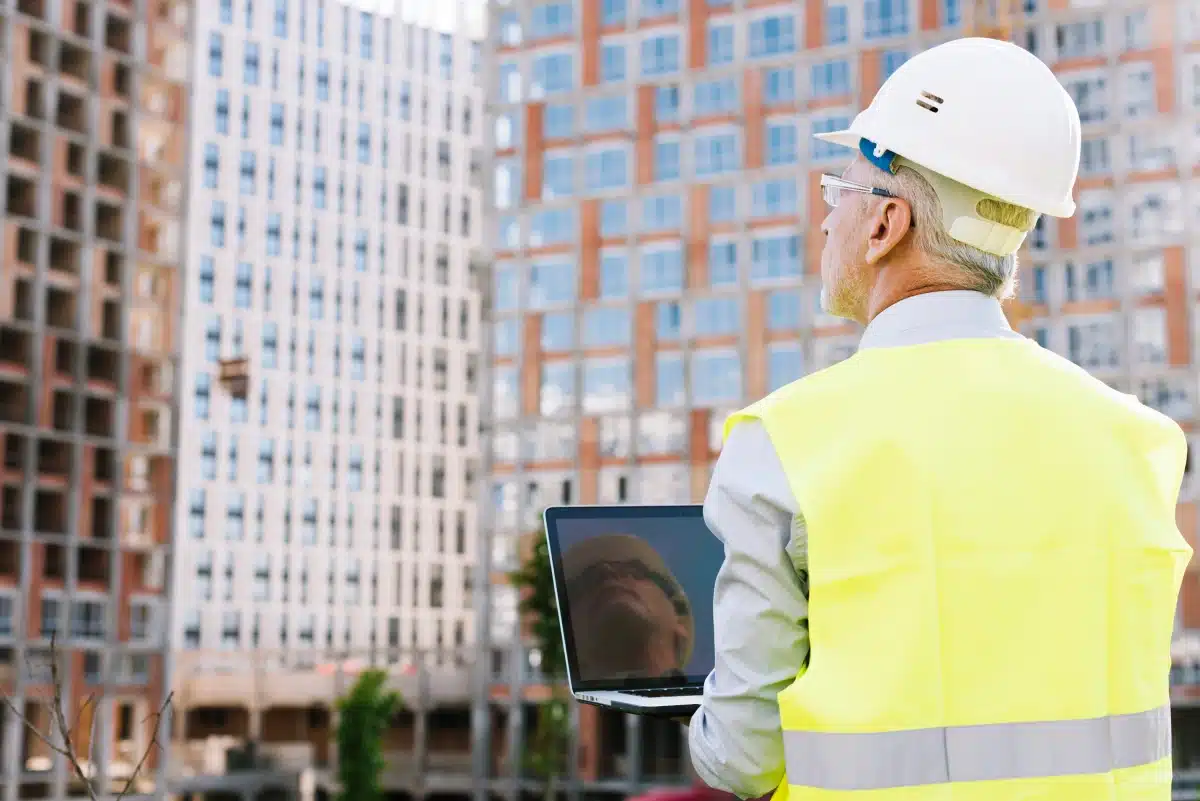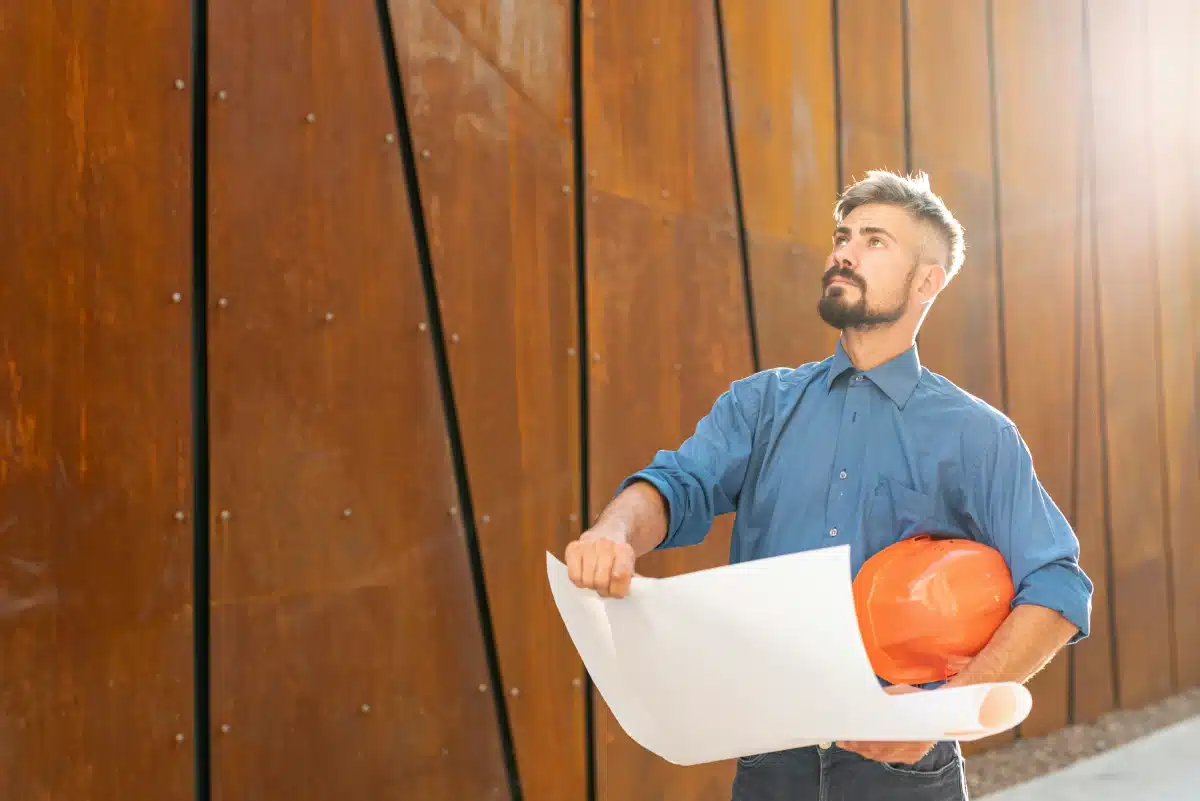
Embarking on a construction project in a foreign country offers immense opportunities, particularly in Turkey’s dynamic and growing sector. However, to maximize these opportunities, foreign investors must skillfully navigate potential challenges. This comprehensive guide, presented by Yahya Construction, is designed to equip you with the knowledge and strategies essential for reducing construction risks in Turkey and achieving project success in 2025 and beyond.
Introduction: Why Effective Risk Management is Crucial in Turkish Construction
Construction projects are inherently complex, prone to a myriad of risks that can impact timelines, budgets, and overall success. In a rapidly evolving market like Turkey, these risks can be amplified by factors such as regulatory changes, seismic activity, and economic fluctuations. Effective construction risk management isn’t just a safeguard; it’s a strategic imperative that protects your investment and ensures project continuity.
Common Risks in Turkey’s Construction Sector
Foreign investors often face unique challenges when undertaking projects in Turkey, including:
- Regulatory Complexity: Navigating local permitting, zoning laws, and evolving compliance requirements can be time-consuming.
- Geological & Environmental Factors: Turkey’s seismic activity necessitates specialized engineering and construction practices, alongside adherence to environmental regulations AFAD earthquake safety guidelines.
- Supply Chain Volatility: Fluctuations in material costs, availability, and logistics can directly impact project budgets and schedules.
- Economic & Political Instability: Currency fluctuations, inflation, and policy changes can introduce financial uncertainties.
- Labor & Resource Availability: Sourcing skilled labor and specialized equipment can sometimes be a challenge.
The Advantage of Partnering with Turkish Construction Companies for Risk Reduction
Partnering with experienced and reliable Turkish construction companies offers a significant strategic advantage in mitigating these risks. Local firms possess invaluable expertise, understanding the nuances of the regulatory environment, local supply chains, and cultural business practices. Their established networks, experience with regional challenges, and adaptability significantly contribute to reducing construction risks in Turkey, ensuring projects are delivered efficiently and effectively.
Understanding Construction Risks in Turkey: A Detailed Look

A thorough understanding of the potential risks is the cornerstone of effective construction risk management. For foreign investors, identifying and analyzing these risks early in the project lifecycle is crucial for developing appropriate mitigation strategies, thereby contributing significantly to reducing construction risks Turkey from the outset.
Common Project Risks Foreign Investors Face
The Turkish construction landscape, while promising, presents several distinct categories of risks:
Regulatory and Permitting Challenges
One of the primary hurdles for foreign investors is the regulatory framework. Obtaining necessary building permits in Turkey, navigating zoning laws, and adhering to various municipal and national regulations can be complex and time-consuming. Misinterpretations or delays can lead to significant project setbacks and cost overruns. It’s essential to have a deep understanding of local laws and the bureaucratic procedures involved.
Seismic and Environmental Factors
Turkey is situated in an active seismic zone, making earthquake resistance paramount. Strict earthquake-resistant building codes in Turkey and construction standards are in place to ensure structural integrity and public safety. Beyond seismic considerations, environmental regulations related to waste management, sustainable practices, and impact assessments also play a crucial role. Ignoring these factors can lead to legal penalties and reputational damage.
Supply Chain and Material Issues
The global construction industry has experienced significant supply chain disruptions, and Turkey is no exception. Volatility in raw material prices, availability of specific construction materials, and logistical challenges can directly impact project costs and timelines. Managing these fluctuations through strategic procurement and diversified supplier networks is critical.Deloitte’s global supply chain report for construction
Impact of Unmanaged Risks on Foreign Investors
The consequences of unmanaged risks can be severe for foreign investors:
Financial and Timeline Implications
Project delays due to regulatory setbacks, material shortages, or unforeseen geological issues directly translate into increased costs. Extended timelines mean higher overheads, potential penalties, and delayed return on investment. Accurate cost estimation and robust contingency planning are vital.
Legal and Compliance Risks
Non-compliance with Turkish building codes, labor laws, or environmental regulations can result in hefty fines, project stoppages, and even legal disputes. Understanding the legal framework and ensuring strict adherence to all applicable laws is paramount to avoiding costly litigation and maintaining a positive reputation.
Strategic Approaches for Reducing Construction Risks

Proactive strategies are key to reducing construction risks in Turkey by minimizing the impact of potential challenges and ensuring project success.
Comprehensive Risk Assessment and Planning
The foundation of effective construction risk management lies in comprehensive assessment and meticulous planning.
Conducting Thorough Site Evaluations
Before any groundbreaking, a detailed site evaluation is indispensable. This includes geotechnical surveys to assess soil conditions, seismic risk assessments, and environmental impact studies. Understanding the specific characteristics of the project site can reveal potential challenges early on, allowing for design adjustments and robust foundational solutions. For more information on structural considerations, refer to The Essential Guide to Static Design and Structural Reporting in Turkey 2025.
Implementing Proactive Risk Identification
Risk identification should be an ongoing process involving all project stakeholders. Brainstorming sessions, analysis of historical data from similar projects, and expert consultations can help identify potential risks, categorize them, and assess their likelihood and impact. This proactive approach enables the development of contingency plans before issues arise, significantly reducing construction risks in Turkey.
Effective Risk Mitigation Techniques
Once risks are identified, specific techniques can be employed to minimize their impact.
Leveraging Technology for Monitoring
Utilizing advanced technology can significantly enhance risk monitoring. Digital tools, real-time monitoring systems, and data analytics can track project progress, material inventories, and site conditions, providing early warnings of potential deviations. This allows for swift corrective actions and proactive problem-solving.
Insurance and Contractual Safeguards
Comprehensive insurance policies, including professional liability, all-risk construction insurance, and third-party liability, are essential financial safeguards. Equally important are robust contractual agreements that clearly define responsibilities, allocate risks, and outline dispute resolution mechanisms. This ensures that liabilities are appropriately distributed among project parties.
The Indispensable Role of Reliable Contracting Companies in Turkey

The choice of a contracting partner is arguably the most critical decision for foreign investors aiming to minimize risks in Turkish construction.
4.1 Key Criteria for Selecting Reliable Partners
Selecting the right construction company in Turkey requires careful due diligence.
Experience and Proven Track Record
Look for Turkish construction companies with a proven track record of successfully completing similar projects in Turkey, especially those involving foreign investment. Request references and review their portfolio to assess their experience in managing complex builds and adhering to international standards.
Certifications and Quality Standards
Verify that potential partners hold relevant industry certifications and adhere to international quality standards. This demonstrates their commitment to professionalism, safety, and high-quality workmanship. For insights into quality standards, visit Turkish Construction Companies: Quality Standards. You can also learn more about how to choose the right construction company in Turkey.
Distinct Benefits of Partnering with Turkish Contractors
Partnering with local Turkish contractors offers distinct advantages for reducing construction risks Turkey.
Local Expertise and Cost Efficiency
Turkish construction companies possess an intimate understanding of local regulations, supply chains, and labor markets. This local expertise can significantly streamline the permitting process, optimize procurement, and often lead to more cost-efficient project execution. Their flexibility and adaptability to local market conditions are also major assets.
Case Studies of Successful Risk-Managed Projects
Numerous examples exist of successful infrastructure and development projects in Turkey where Turkish construction companies played a pivotal role in managing risks. These case studies highlight their ability to navigate complex challenges, from seismic engineering to regulatory compliance, delivering projects on time and within budget. Yahya Construction, as a leading construction contractor in Turkey, has a long history of delivering such projects with a strong focus on risk mitigation.
Construction Risk Management Best Practices for Foreign Investors

Beyond specific mitigation techniques, integrating best practices throughout the project lifecycle is crucial for sustained risk reduction.
5.1 Integrated Project Management for Holistic Control
A holistic approach to project management fosters collaboration and control.
Collaborative Approaches with Stakeholders
Encouraging open communication and collaboration among all stakeholders – investors, contractors, architects, engineers, and local authorities – can identify and address potential risks proactively. Regular meetings, clear communication channels, and shared project goals reduce misunderstandings and facilitate timely decision-making.
Robust Timeline and Budget Controls
Implementing robust timeline and budget controls, including detailed project schedules, cost tracking systems, and regular financial reporting, is essential. Contingency budgets should be established to absorb unforeseen expenses, and strict adherence to the project schedule helps prevent costly delays.
Compliance and Safety Measures: Non-Negotiable Priorities
Adherence to local regulations and prioritizing safety are non-negotiable for reducing construction risks Turkey.
Adhering to Turkish Building Codes Rigorously
Strict compliance with Turkish building codes, particularly those related to earthquake resistance, is paramount. This includes thorough structural analysis, appropriate material selection, and adherence to construction methodologies designed for seismic zones.
Health, Safety, and Environmental (HSE) Protocols
Implementing stringent HSE protocols on site protects workers, the public, and the environment. This includes regular safety training, use of personal protective equipment (PPE), hazard assessments, and responsible waste management. A strong HSE culture minimizes accidents, legal liabilities, and reputational damage.
Technology and Innovation: Driving Risk Reduction Forward
The integration of advanced technology and innovative practices is transforming construction risk management.
Digital Tools for Enhanced Risk Management
Digital solutions offer unparalleled capabilities for monitoring, analysis, and prediction.
BIM and AI Applications
Building Information Modeling (BIM) provides a comprehensive 3D model of the project, enabling clash detection, design optimization, and visual planning, thereby identifying potential design-related risks before construction begins. Artificial intelligence (AI) can analyze vast datasets to predict potential risks, optimize resource allocation, and enhance decision-making.
Real-time Monitoring Systems
Sensors, drones, and IoT devices can provide real-time data on site conditions, structural integrity, and equipment performance. This continuous monitoring allows for immediate identification of anomalies and enables proactive interventions, preventing minor issues from escalating into major problems.
Sustainable Practices for Long-Term Risk Mitigation
Embracing sustainable construction methods not only benefits the environment but also reduces long-term risks.
Eco-friendly Methods to Minimize Future Risks
Adopting eco-friendly construction practices, such as using sustainable materials, minimizing waste, and optimizing energy consumption, can reduce a project’s environmental footprint. This also mitigates regulatory risks associated with environmental compliance and enhances the project’s long-term value and marketability.
Green Building Standards
Adhering to international green building standards and certifications demonstrates a commitment to sustainability and can lead to cost savings through energy efficiency and reduced resource consumption. It also appeals to a growing market of environmentally conscious investors and tenants.
Real-World Success in Reducing Construction Risks in Turkey

Learning from real-world examples offers valuable insights into effective construction risk management strategies.
Residential and Commercial Developments: Foreign-Led Successes
Numerous foreign-led residential and commercial developments across Turkey have successfully navigated potential risks. These projects highlight the benefits of local partnerships, thorough due diligence, and adherence to local building codes. For instance, projects that prioritize earthquake-resistant buildings in Turkey and sustainable building practices have not only minimized risks but also enhanced their market value. Yahya Construction has been involved in a multitude of such projects, working closely with international investors to ensure seamless execution and risk mitigation. Our portfolio showcases our expertise in delivering high-quality, secure, and profitable developments.
New Opportunities for Foreign Investors in Turkey
Despite emerging risks, Turkey continues to offer attractive opportunities for foreign investors.
Growth Sectors and Strategic Partnerships
Key growth sectors in Turkey, such as renewable energy, smart city infrastructure, and sustainable housing, present significant investment opportunities. Foreign investors can leverage these by forging strategic partnerships with experienced Turkish construction companies, combining international capital and expertise with local knowledge and execution capabilities.
Evolving Turkish Market Trends and Innovation Adoption
The Turkish construction market is increasingly adopting international best practices and embracing technological advancements. This evolving landscape offers opportunities for foreign investors to introduce innovative construction methodologies, sustainable technologies, and advanced risk management frameworks, further enhancing the safety and efficiency of projects.
Conclusion: Partnering for Risk-Free Success in Turkish Construction
Successfully navigating the complexities of construction projects in Turkey requires a comprehensive and proactive approach to construction risk management. By understanding common pitfalls, implementing effective mitigation strategies, and leveraging the invaluable expertise of reliable Turkish construction companies, foreign investors can significantly reduce their exposure to risks and ensure the successful delivery of their projects.
Yahya Construction stands as a premier partner for foreign investors, reducing construction risks in Turkey. With a deep understanding of the local landscape, adherence to the highest quality and safety standards, and a proven track record of successful project delivery, we offer unparalleled expertise in every stage of your project. From meticulous risk assessment and planning to the implementation of advanced technologies and adherence to stringent legal frameworks, Yahya Construction is committed to ensuring your investment is secure and your project achieves its full potential.
Contact Yahya Construction today for expert risk assessment, personalized strategies, and reliable contracting services to ensure your project success in Turkey.
Frequently Asked Questions (FAQs)
- What are the main construction risks in Turkey for foreign investors? The main construction risks Turkey for foreign investors include regulatory and permitting challenges, seismic and environmental factors, supply chain and material issues, economic and political fluctuations, and labor/resource availability.
- How can Turkish companies help in reducing construction risks? Turkish construction companies, like Yahya Construction, offer invaluable local expertise, established networks for supply chains and labor, and a deep understanding of Turkish regulations and cultural business practices. Their adaptability and experience significantly aid in navigating challenges and mitigating risks.
- What is effective construction risk management? Effective construction risk management involves the systematic identification, assessment, mitigation, and monitoring of potential risks throughout the project lifecycle. It’s a proactive approach to minimize negative impacts on project timelines, budgets, and quality.
- How do I choose reliable contracting companies in Turkey? To choose reliable contracting companies Turkey, assess their experience and track record with similar projects, verify their certifications and adherence to quality standards, check their financial stability, and request client references. Local expertise and a strong reputation are key indicators.
- What role does technology play in risk reduction? Technology plays a crucial role through tools like Building Information Modeling (BIM) for clash detection and design optimization, AI for predictive analytics, and real-time monitoring systems (sensors, drones) for continuous oversight of site conditions, enabling early risk identification and proactive intervention.
- Are there specific regulations for seismic risks in Turkey? Yes, Turkey has stringent and continuously updated earthquake codes and building regulations. These codes dictate structural design, material selection, and construction methodologies to ensure buildings are resilient against seismic activity.
- What are best practices for contract risk allocation? Best practices for contract risk allocation include clearly defining responsibilities for all parties, specifying liabilities for delays, cost overruns, and design flaws, and incorporating clear dispute resolution mechanisms (e.g., mediation, arbitration) to manage potential conflicts.
- How does Yahya Construction support risk management? Yahya Construction provides comprehensive construction risk management support by offering expert risk assessment, thorough site evaluations, adherence to stringent Turkish building codes and international quality standards, leveraging advanced technology, and employing integrated project management approaches to ensure successful and risk-mitigated project delivery for foreign investors.
Partner with Yahya Construction: Your Expert Engineering Consultancy in Turkey
For international investors, real estate developers, and foreign companies, navigating the complexities of the Turkish construction and development landscape demands a reliable, knowledgeable, and experienced partner. Yahya Construction stands as a premier Turkish engineering consultancy, offering comprehensive engineering services Turkey tailored to your specific needs.
We combine profound local market insight with an unwavering commitment to international quality standards, cutting-edge technology, and sustainable practices. Whether you require expert guidance on structural design, intricate project management, strategic real estate consulting in Turkey, or navigating the regulatory framework, our team is equipped to ensure the success of your venture.
Contact Yahya Construction today to discuss your project requirements and discover how our specialized engineering consultancy services can transform your vision into a successful reality in Turkey. Let us be your trusted guide in this dynamic market.

